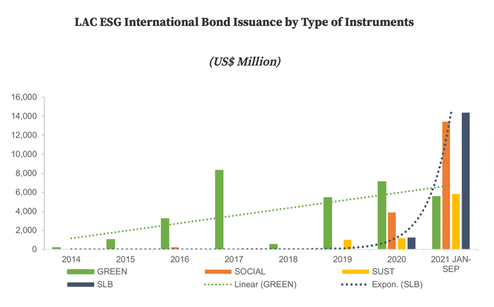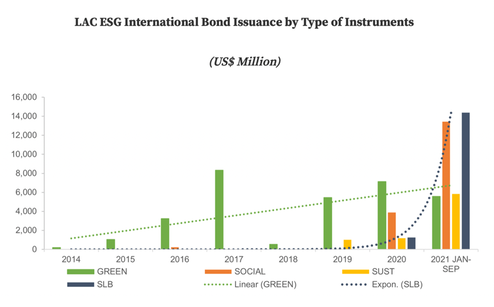
A Four-Way Deal: Fox, Sky, Disney and Comcast
Comcast Corporation, the world’s largest media conglomerate by revenue, has just announced its plans to acquire all of UK broadcaster Sky Plc for £22.1 billion ($30.9 billion), in a time when the latter is more wanted than ever. This news comes after a complex period involving some of the largest players in the industry.
21st Century Fox To Acquire Sky
In December 2016, Rupert Murdoch’s Twenty-First Century Fox Inc. announced its second offer to acquire the 61% of Sky it did not own for £11.7 billion. The two companies reached an agreement only a few days later. Subject to approval from the British regulators, the deal has been carefully followed by the main players in the telecommunications sector. Due to the common view that Murdoch’s family already has a strong influence on the United Kingdom’s media, Sky threatened to close Sky News, currently operating on net losses circa £40 million a year, in case its ownership of the channel becomes an impediment to the transaction. The reasoning was to not let a news channel, deemed a major source of political influence, make the deal fall through, given that the channel was not even generating profits.
Disney To Acquire Fox
On 14 December 2017, The Walt Disney Company agreed to buy almost all of 21st Century Fox assets, including the latter’s 39% stake in Sky, in an all stock deal worth $52.4 billion. This acquisition would “not alter [its] full commitment and obligation to conclude our proposed transaction”, Fox said. Analysts suggested that Mr. Murdoch and Disney CEO Robert Iger were confident the deal could make Fox’s transaction less controversial, as Murdoch’s family would perhaps lose its strong ties to the company. There were other reasons involved, such as synergies from cost-cutting reaching $2 billion per year. Disney, the second largest media conglomerate worldwide, sees Sky as a way to grow their international presence. On the seller’s side, personal motives such as selling assets built over a life-long career at a premium or focusing more on activities of interest have also been attributed to Rupert Murdoch’s decision. “We’re pivoting back to our first love, which is news and sports - things that happen in real time. We’re proud that we make great movies and TV shows, but it takes a long time”, the Chairman said. Disney expects the deal to close in no more than 18 months. However, Disney will have to pay Fox fees in the amount of $1.52 billion if it backs out from the deal and $2.5 billion if regulators block the transaction, according to a Disney regulatory filing.
Fox-Sky Deal Not In Public Interest
On 23 January 2018, the British regulators deemed the acquisition of Sky by Fox, in its current form, not in public interest. The Competition and Market Authority issued a preliminary report, in which it recommended the divestment in Sky News, citing the threat to media plurality as the main impediment to the transaction. The most likely consequences were, according to many, that Sky News would be spun-off, sold, or insulated from the Murdoch Family Trust’s influence. On 20 February, Fox submitted a concessions package, extending its commitment to Sky News from five to ten years, while guaranteeing an independent editorial board for the news channel. Sky's senior independent director, Martin Gilbert said "It still seems likely that Sky can offer concessions that will see this deal go through."
While the representatives of both companies believe the transaction will go ahead, Fox and Sky may still have a difficult battle to fight. Labour Party politician Ed Miliband recently urged the CMA to stand by their current opinion, and even suggested that the Secretary of State would block this deal.
Comcast Bids 16 Percent Higher for Sky
On Tuesday, 27 February, Comcast announced its plans to acquire Sky in full, for an outstanding £22.1 billion, or £12.50 a share. This represents a premium of 16.28% to Fox’s offer for the 61% of Sky it does not own. Investors saw this announcement as very positive news, as Sky’s shares went up by over 20% in a single trading day, closing at £13.18. It is noteworthy that this price is above the one offered by Comcast, as the market is expecting a bidding war. Shares were already trading at a premium to the initial £10.75 bid made by Fox since 14 February, when market closed at £10.82, and any new announcement by the firms involved will certainly have a strong impact on Sky’s shares
Comcast Corporation, the world’s largest media conglomerate by revenue, has just announced its plans to acquire all of UK broadcaster Sky Plc for £22.1 billion ($30.9 billion), in a time when the latter is more wanted than ever. This news comes after a complex period involving some of the largest players in the industry.
21st Century Fox To Acquire Sky
In December 2016, Rupert Murdoch’s Twenty-First Century Fox Inc. announced its second offer to acquire the 61% of Sky it did not own for £11.7 billion. The two companies reached an agreement only a few days later. Subject to approval from the British regulators, the deal has been carefully followed by the main players in the telecommunications sector. Due to the common view that Murdoch’s family already has a strong influence on the United Kingdom’s media, Sky threatened to close Sky News, currently operating on net losses circa £40 million a year, in case its ownership of the channel becomes an impediment to the transaction. The reasoning was to not let a news channel, deemed a major source of political influence, make the deal fall through, given that the channel was not even generating profits.
Disney To Acquire Fox
On 14 December 2017, The Walt Disney Company agreed to buy almost all of 21st Century Fox assets, including the latter’s 39% stake in Sky, in an all stock deal worth $52.4 billion. This acquisition would “not alter [its] full commitment and obligation to conclude our proposed transaction”, Fox said. Analysts suggested that Mr. Murdoch and Disney CEO Robert Iger were confident the deal could make Fox’s transaction less controversial, as Murdoch’s family would perhaps lose its strong ties to the company. There were other reasons involved, such as synergies from cost-cutting reaching $2 billion per year. Disney, the second largest media conglomerate worldwide, sees Sky as a way to grow their international presence. On the seller’s side, personal motives such as selling assets built over a life-long career at a premium or focusing more on activities of interest have also been attributed to Rupert Murdoch’s decision. “We’re pivoting back to our first love, which is news and sports - things that happen in real time. We’re proud that we make great movies and TV shows, but it takes a long time”, the Chairman said. Disney expects the deal to close in no more than 18 months. However, Disney will have to pay Fox fees in the amount of $1.52 billion if it backs out from the deal and $2.5 billion if regulators block the transaction, according to a Disney regulatory filing.
Fox-Sky Deal Not In Public Interest
On 23 January 2018, the British regulators deemed the acquisition of Sky by Fox, in its current form, not in public interest. The Competition and Market Authority issued a preliminary report, in which it recommended the divestment in Sky News, citing the threat to media plurality as the main impediment to the transaction. The most likely consequences were, according to many, that Sky News would be spun-off, sold, or insulated from the Murdoch Family Trust’s influence. On 20 February, Fox submitted a concessions package, extending its commitment to Sky News from five to ten years, while guaranteeing an independent editorial board for the news channel. Sky's senior independent director, Martin Gilbert said "It still seems likely that Sky can offer concessions that will see this deal go through."
While the representatives of both companies believe the transaction will go ahead, Fox and Sky may still have a difficult battle to fight. Labour Party politician Ed Miliband recently urged the CMA to stand by their current opinion, and even suggested that the Secretary of State would block this deal.
Comcast Bids 16 Percent Higher for Sky
On Tuesday, 27 February, Comcast announced its plans to acquire Sky in full, for an outstanding £22.1 billion, or £12.50 a share. This represents a premium of 16.28% to Fox’s offer for the 61% of Sky it does not own. Investors saw this announcement as very positive news, as Sky’s shares went up by over 20% in a single trading day, closing at £13.18. It is noteworthy that this price is above the one offered by Comcast, as the market is expecting a bidding war. Shares were already trading at a premium to the initial £10.75 bid made by Fox since 14 February, when market closed at £10.82, and any new announcement by the firms involved will certainly have a strong impact on Sky’s shares
Source: Financial Times
Now we are left with many possibilities for the unfolding of this story. Fox could make a new bid to acquire Sky as it wanted in the first place, and then proceed to make the deal with Disney. Instead, Mr. Murdoch may prefer to accept Comcast’s offer, as he has strongly changed his initial position as a buyer to a more radical seller’s standpoint, aiming to cash in on some of his assets for family reasons. However, this option would require Disney approval, as Fox cannot sell its shares of Sky without such, as stated in the contract signed by the two giants. Otherwise, Fox would have to pay Disney $1.52 billion in break-up fees. Another alternative for Fox would be to keep its 39% stake and thus partner with Comcast in Sky, at least until Disney completes its acquisition. However, nothing is known regarding Disney’s will to partner with Comcast on Sky, so this alternative would have its own ramifications as well.
Sky is now trading at 30 times its earnings, as the benefits of control are fully incorporated in the share price. A content producer such as Sky provides ideal synergies to the largest media companies, which already have the distribution system, and are happy to own the content they broadcast. Moreover, the American companies see in Sky an opportunity to expand their footprint into Europe, given that Sky has operations in the UK, Germany, Italy, Spain, Ireland, and Austria. When small, retail investors approach this stock, they must not focus on its intrinsic, stand-alone value. Since a deal is likely to happen very soon, they must rather think of how much Sky is worth to the possible buyers.
João Coelho
Sky is now trading at 30 times its earnings, as the benefits of control are fully incorporated in the share price. A content producer such as Sky provides ideal synergies to the largest media companies, which already have the distribution system, and are happy to own the content they broadcast. Moreover, the American companies see in Sky an opportunity to expand their footprint into Europe, given that Sky has operations in the UK, Germany, Italy, Spain, Ireland, and Austria. When small, retail investors approach this stock, they must not focus on its intrinsic, stand-alone value. Since a deal is likely to happen very soon, they must rather think of how much Sky is worth to the possible buyers.
João Coelho
